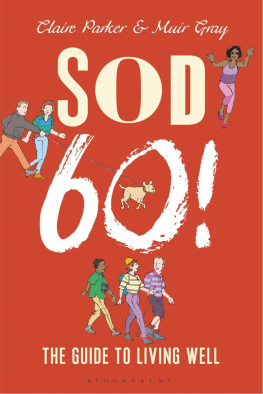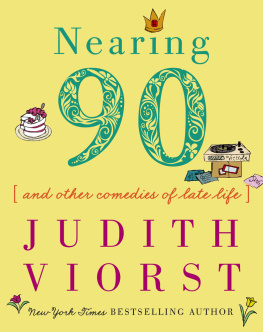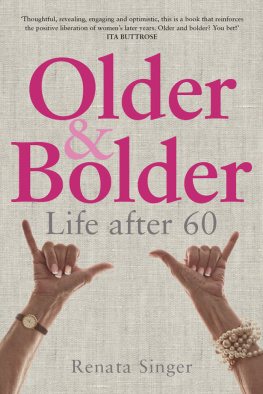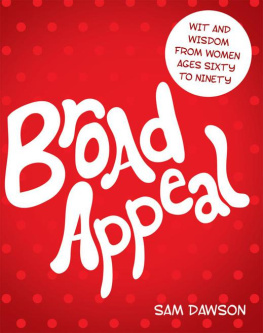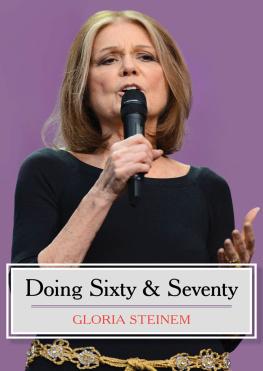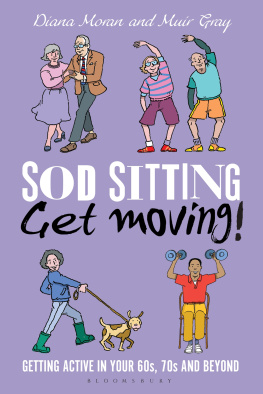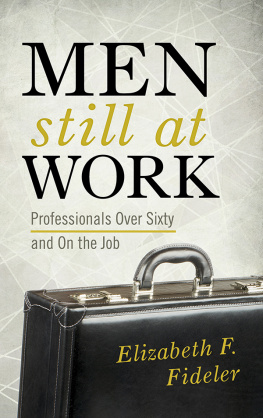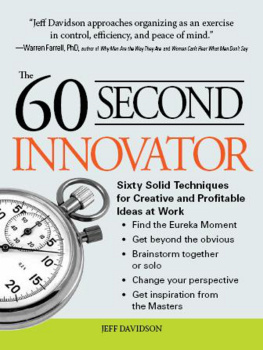SOD
SIXTY!
This book is dedicated to Joyce Rosemary Cockram (11.10.1926 17.2.2015) for the inspiration and love she gave to the very end .
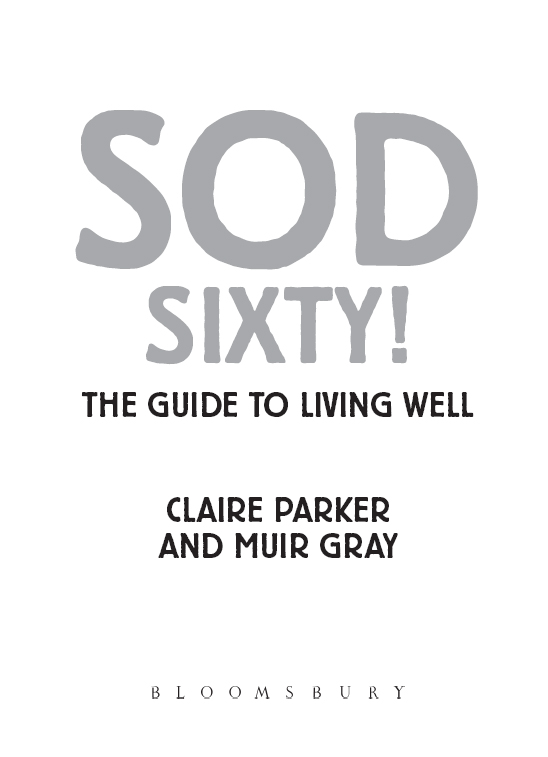
CONTENTS
Dear Reader
Good health and well-being is not rocket science it's very simple. Get as active physically and mentally as you possibly can, and then a bit more. It works. Be positive in your approach to the challenges and the opportunities in your life. They all matter.
You really can take charge of your health. Its seldom too late to get fitter and rarely too soon to start doing so. If this is the last line you read then take it away with you get active and get attitude!
We hope you will find Sod 60! fun and helpful. Its all about attitude and action and changing what you think and believe about your health. Its about what you can do to get healthier and stay healthier in your 60s and beyond. And its about challenging your assumptions and societys so that false beliefs about age dont get in your way.
I may be a doctor, but that doesnt mean Ive always been as fit as I could be. I knew when I started to think about this book with Muir that I wasnt doing all I could to keep active, not by a long shot. In fact, I knew I couldnt write this book honestly without doing something about my own lifestyle. So last summer I started to get more active, and if I can do it, you can do it.
We have included quite a few tried and tested exercises as examples of the sort of body conditioning and activity levels you should aim for. If youre not yet as active and fit as you might be try these exercises, and you will soon reap the benefits.
This book was inspired by Muir Gray who originally wrote Sod 70! , a book about health and well-being for people in their 70s. Muir is a public health doctor a real mover and shaker of population health care in the NHS in the UK. We take many of his achievements for granted now: his contribution to cervical screening, breast screening, setting up national electronic libraries of health and spearheading easy access to health information for the general public and health professionals alike. Happily his services were rewarded with a knighthood in 2005.
Two particular passions of his have been the health of older people and how we, all of us, make health-related decisions. And so, to celebrate the run-up to his own 70th birthday, he decided to blow apart some of the myths about ageing that stop people keeping active. Hence Sod 70!
And this book happened as a direct result of that one along with a twist of serendipity.
It so happens that Muir and I have the same birthday but exactly 10 years apart. We worked together nearly 30 years ago on a project to improve the care of older people with heart disease. At the time we had no idea we shared a birthday, but quite by chance Muir discovered this when celebrating his 70th. So, it was not a complete coincidence but a rather nice twist to the tale when I received an unexpected birthday invitation not to a party, but to a project to adapt Sod 70! for those in their 60s.
But whats so special about being in our 60s that calls for another book? In one sense nothing at all, age is a continuum and its just by convention that we tend to divide our lives and history into chunks called decades, to handle them more easily. Many of our expectations and life plans tag along with these decade chunks, which do not really reflect natural cycles at all.
It may be that in 20 or 30 years there will be very little detectable difference in health and well-being between our 60s and 70s: and the differences between decades (or even longer intervals) may only start to appear at a much later age.
So why Sod 60 ? Why not use the brilliant Sod 70! and make the obvious adaptations in our own mind for the age difference?
Well, we could. And it is more than likely that if someone in the family has a copy of Sod 70!, then it might have been read and used by those in their 50s, 60 and 80s, because the fundamental message of keep active for better health is the same, and many of the helpful hints on how to manage health decisions can be applied at any age. But the fact is that 60 is a real transition point, almost a rite of passage in our culture. Not that long ago people whose work was mainly outside the home used to retire at 60 and for women that was the pensionable age. Of course, things have changed, people live longer and many choose or need to work throughout their 60s and into their 70s.
The state pensionable age has been 65 for some years and is creeping higher as life expectancy increases. Women of the class of 1954, will currently collect their state pension at about 67 and can, on present trends, expect to live at least another 20 years or more. For those who have chosen to retire from their first main occupation at 60, as I have done, its often seen as a time to change career or the direction of it rather than to stop working altogether.
So because 60 is often seen as a significant turning point in life with many years ahead, it is a real opportunity to seize the moment and take stock of our health and well-being.
We hope this book will help you seize the moment and take charge of your own well-being, so that with a bit of luck in avoiding those diseases that can take any of us by surprise, you will be even fitter at 70 than you are at 60. And should Stuff Happen and diseases or unwelcome life events come your way, the aim of this book is that you will be more resilient to cope with them and fitter to manage them.
So here is Sod 60! , from us to you.
Claire Parker and Sir Muir Gray
The good news as you enter your 60s is that whatever your life history so far your genes, family background, upbringing and unique life experiences, whether or not you have medical conditions that need special care, it is seldom too late to get more active or to soon too start.
Sod 60! is about being as well as doing and attitude as well as action. Its about getting more active. What has past is past, and we can learn from it. The future hasnt happened. We can think about it, plan it and imagine it, but we can really only focus our attention where we are right now.
This book is about how you can take charge of your health and make the most of your 60s and beyond. It explores false assumptions about ageing which can creep up before you realise. You can overturn these before they inhibit your fitness and your independence.
But this book is not a rosy gloss on the realities of life. Its not a numbing or a dumbing of problems that might exist and it doesnt pretend that self-help can achieve everything. Difficulties and diseases do occur. Sod 60! is based on the understanding that Stuff Happens in life. But neither is this book fatalistic. Its about well-being in our ordinary lives, with all their ups and downs.
Ageing and disease are different processes, even though they sometimes co-exist. Both fare better if we can keep as active as we possibly can. The evidence is overwhelming: activity is central to fitness and fitness is fundamental to well-being even if we have a medical condition.
Physical strength and mental resilience are more closely connected than you might think. They help each other, and both together help you to struggle through a nasty bout of flu as well as cope with the ups and downs of life. So fitness and resilience are a strong combination, and underpin your health and your well-being.
Getting fitter and staying fitter improves the outcome of many diseases that can occur in later life. And the evidence is strong research shows that this applies to cancer, heart disease, diabetes, arthritis, depression and, very possibly, dementia.

